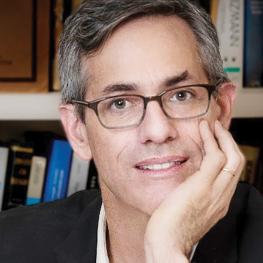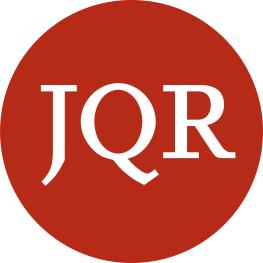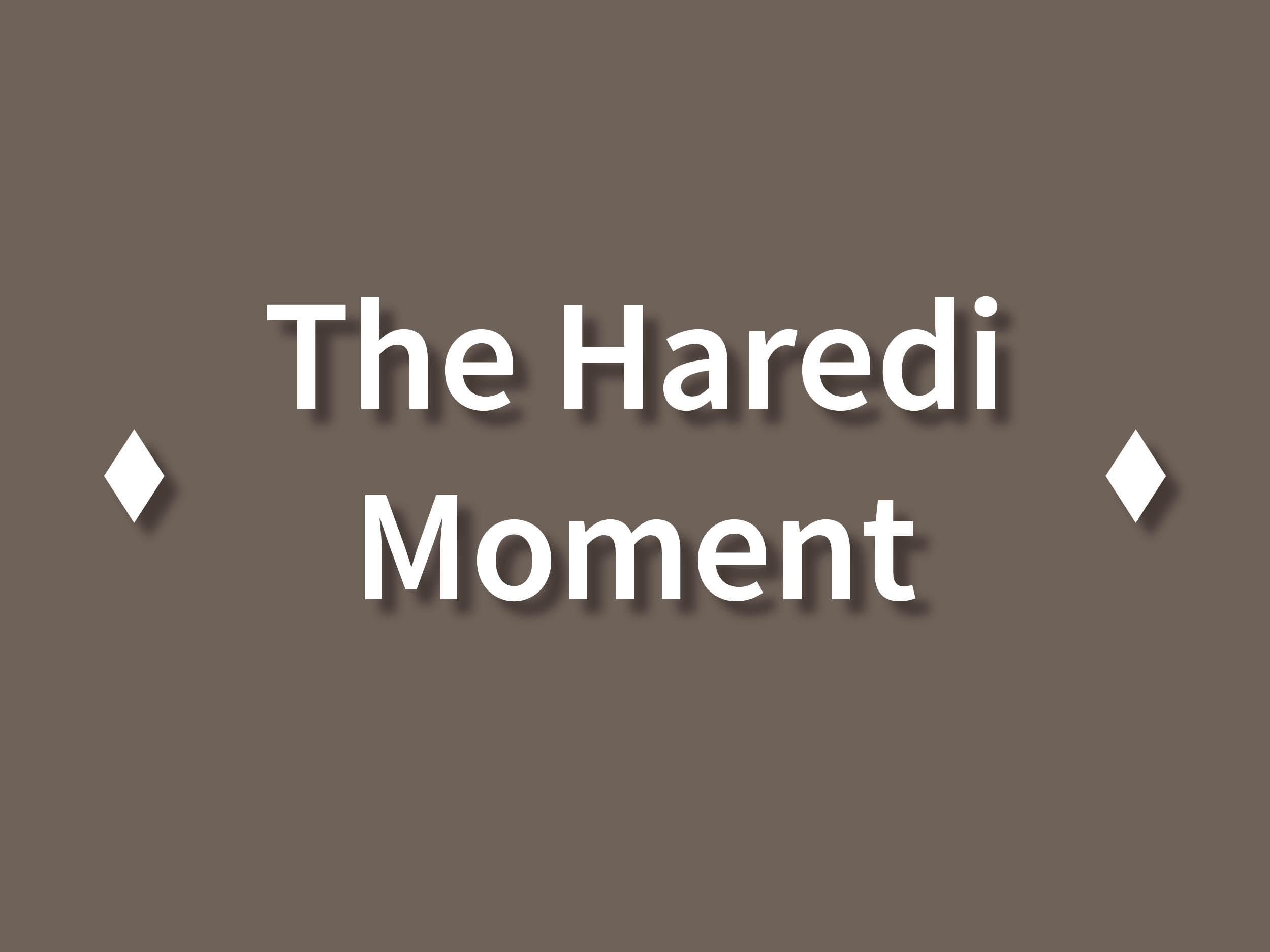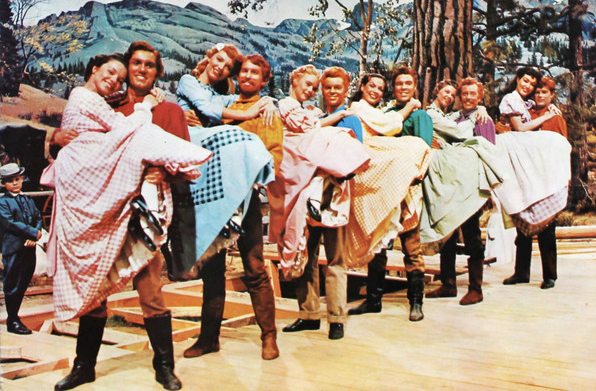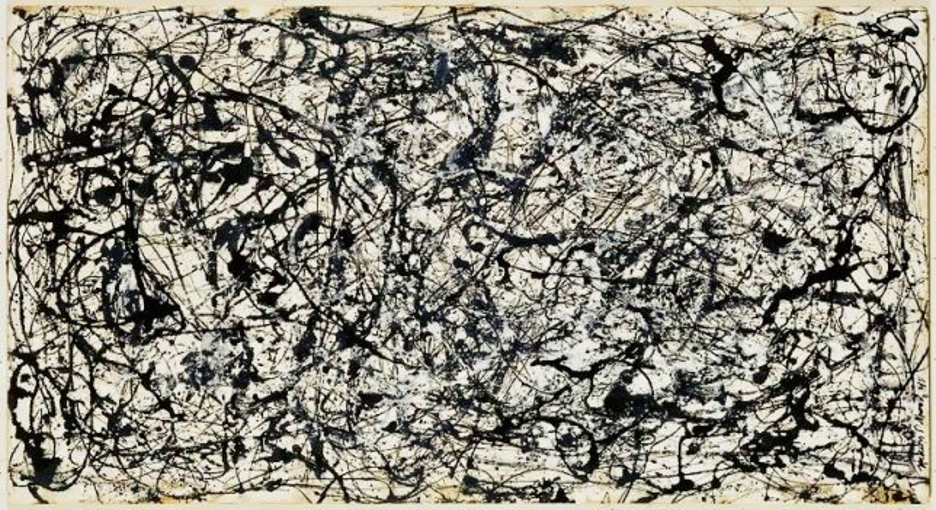The Haredi Moment: An Online Forum, Part 2
Part two of our forum on recent developments in the Ultra-Orthodox world features Netta Barak Corren and Lotem Perry-Hazan, Lea Taragin-Zeller, and Nechumi Yaffe and Shuki Friedman.
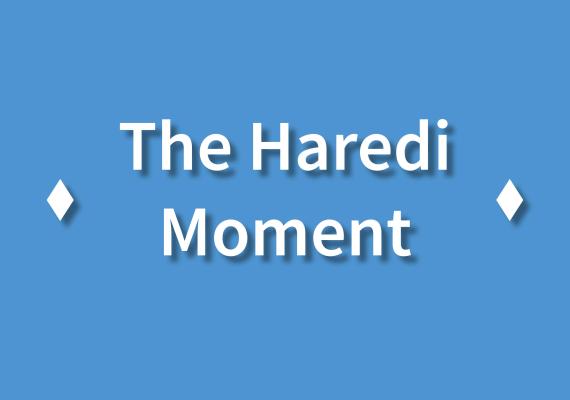
2020 was an especially prominent year for Haredim. The COVID-19 (Corona) crisis, together with the U.S. Presidential election, featured a much more visible and seemingly defiant public presence by Haredim and, concomitantly, brought an enormous amount of new public attention to them. This moment yielded a different face of Haredi Judaism than the quiet and sequestered enclave society of years past.
How and when did this happen? When did Haredim in the United States abandon their pragmatic transactional politics for a bold, libertarian Trumpism? And both in the U.S. and in Israel, did they did really leave behind their erstwhile medical savvy and commitment to pikuah nefesh (saving a life) for a proud resistance to science?
Complex answers lie behind these questions. To help address them, JQR is pleased to sponsor this timely online forum on “the Haredi Moment” to which we have invited a group of outstanding scholars who have spent their careers studying Orthodox Judaism and Haredim in Israel and the United States. The forum consists of nine essays by these scholars, which we divided into three over the course of three weeks. The short essays reveal the distinctiveness, diversity, and challenges of Haredi life—and set in place a multidimensional perspective that resists the twin ills of reductionism and exoticism that often attend popular representations.
This week we are pleased to present part 2 of the forum featuring Netta Barak Corren and Lotem Perry-Hazan, Lea Taragin-Zeller, and Nechumi Yaffe and Shuki Friedman discussing the complex and ever-shifting dynamics between the Haredi community and the state in Israel, as well as the need for a new mode of communications between them.
Part 3 will feature Orit Avishai, Itamar Ben-Ami, and Joshua Shanes discussing far-reaching changes in self-perception, societal mission, and gender identities in the Haredi world, set against (and at times in tension with) a deeply ingrained political conservatism that extends from liberal to traditionalist ends of the Orthodox spectrum.
Part 1 featured Ayala Fader, Samuel Heilman, and Shaul Magid discussing changes in leadership and notions of authority in the Haredi world, as well as shifting attitudes to and uses of science and technology.
Shared Fate, Unshared Faith: Israel and the Haredi Society in the Current Corona Moment
Netta Barak Corren and Lotem Perry-Hazan
Surviving national emergencies requires a collective effort. Yet mobilizing all parts of society to collaborate is challenging, particularly when the effort required meets with religious objections. Can states persuade ultrareligious communities to comply with the law in such crucial times, even when compliance conflicts with communal norms?
This question could not be more timely. Since the coronavirus crisis erupted, the spread of the pandemic in Haredi communities in Israel, and the responses of these communities, have attracted close attention and triggered heated debate. Among other events, the past year has been marked with mass defiance of closure regulations by Haredi schools; huge celebrations and weddings that were held indoors contrary to guidelines; and high rates of infection, hospitalization, and mortality among the Haredim, relative to their share of the population. Gradually it became clear that the state is either unwilling or unable to enforce the new pandemic regulations on the Haredi public. This led many non-Haredim to conclude that Israel has two classes of citizens: one that is subject to the rule of law, and another that considers itself exempt from civil obligations and does not face legal consequences.
Was this outcome inevitable? Haredim and non-Haredim in Israel may not share a single faith, but they share a common fate. Are the two groups bound to be separated by unequal treatment and unshared social burdens—as in the case of conscription—or can they find common understandings and shared paths?
A study we conducted on the closure of Haredi schools in the first wave of the COVID crisis in Israel suggests that the answer is more open than it seems.
Our study began in mid-March 2020, when all schools in the country were first ordered to close due to the pandemic, and several prominent rabbis, chief among them the Lithuanian leader Rabbi Chaim Kanievsky, ordered in turn that Haredi schools should remain open. In the following two weeks, we interviewed Haredi principals, collected reports from the Haredi media, and conducted an extensive phone survey of Haredi schools. We sought to examine the decision-making of Haredi principals in real time and to grasp their perceptions of law, science, and rabbinical authority.
This combination of research methods allowed us to estimate carefully that about half of Haredi schools complied with the regulations, while the other half violated them. This internal split correlated with markedly different views of all three authorities: law, science, and religion. We found that the principals who closed their schools believed that “a law is a law,” that the regulations were clear and unambiguous and ought to be obeyed, and that medical experts should be trusted. Some principals emphatically criticized the rabbis who ordered defiance of the regulations. In contrast, the principals who violated the regulations portrayed them as vague, cherry-picked what medical guidelines to follow, and declared that the entire issue is “determined by the Torah, not the state.” This variation in opinions among Haredi principals reflects the profound and ongoing diversification of contemporary Haredi society, wherein large sections are redefining their relations with Israeli society, while other sections are fortifying the walls of Haredi seclusion.
We also examined how state authorities responded to the behavior of Haredi institutions. We found that the state chose to refrain from enforcement, thereby empowering defiant Haredi rabbis and institutions. In the political arena, the government negotiated compliance with Haredi parties and representatives of Rabbi Kanievsky, sending a message to school principals that business was as usual. Local authorities with substantial Haredi representation crafted their own informal policies, and replaced the obligation to close schools with an attenuated norm of instruction in small groups and emphasis on hygiene. And what about the police? Principals from different parts of the country recounted the same story over and over again: the police arrived at their institutions and rather than ordering their closure told principals that they may continue to violate the regulations. One of the defiant principals described such a meeting with the police: “They never told me: ‘Listen, what you’re doing is wrong; go home.’ No such statement was made! […] maybe this was an instruction from the top concerning the Haredi community […] or maybe they shut their eyes.”
Hence, our findings reveal a two-way learning process, which we term bidirectional legal socialization: Haredi political leaders taught the state (once again) that the Haredim are not subject to the norms applicable to all citizens, whereas the state taught Haredi communities that it is willing to bend the laws to accommodate their demands even in an unprecedented crisis that has far-reaching health, social, and economic consequences for the entire nation. In this interplay, each side observes the legal behavior of the other and learns lessons for the next encounter. Not only did the principals who violated the law learn not to fear law enforcement, we found that the principals who followed the regulations watched and learned that “there is no enforcement, and everyone has to take care of themselves.” Some concluded that legal authorities are not as committed to law enforcement as they initially believed, or that Haredim are “under the radar” as far as the state is concerned.
A direct line can be seen between the conclusion drawn by compliant first-wave principals and the increase in disobedience documented in later waves of the pandemic. A survey co-led by one of us (Barak-Corren) in November 2020 revealed that 67% of Haredi schools were open during their mandated closure, marking a considerable rise from the ~42–51% that were open in March. In January 2021, the Ministry of Education reported that about half of all COVID-19 infected students nationally attended Haredi schools, despite comprising only 20% of the nationwide student population.
How should the state act in such circumstances? First, our study suggests that the state should not succumb to learned helplessness, but should appreciate its ability to mold and reshape the relationship with Haredi society. Our findings show that the first coronavirus wave presented an opportunity to open a new chapter in the relationship between Haredim and non-Haredim in Israel. The fact that many Haredi principals were willing to comply with the regulations and trust the law, despite a history of mistrust, highlights the squandered opportunity to mobilize the Haredi community to share in the effort to curb the pandemic more widely. However, when the state opts for subverting the law and empowering defiant principals, instead of rewarding and facilitating compliance, it ultimately discourages those who were willing to share in the effort.
In conclusion, Israel squandered the opportunity presented by the coronavirus to reshape its relationship with the Haredi society, but it cannot afford to squander the next opportunity. Haredi society is a minority unlike other minorities. Haredi political parties exert unmatched influence on Israel’s fragile parliamentary democracy, which they have consistently translated into special privileges and sweeping exemptions for Haredi institutions and individuals in a variety of areas. As a result, the Haredim are sharply underrepresented in the work force, higher education, and the military, are highly dependent on welfare payments, and during the pandemic, experienced dire health consequences that may persist in the long term. Demographic forecasts predict that by the year 2040, 30% of children in Israel will study in Haredi schools, and by 2065, 49% of Israeli children will be Haredi. These forecasts raise further concerns about the sustainability of the current regime.
These factors pose considerable obstacles for the relationship between Haredim and non-Haredim in Israel, but they also underscore the acute need for change. Liberal democracies can accommodate religious claims for exemptions from rules of general applicability in some cases. But the massive and organized disobedience that intensified among Haredi sects and institutions during the pandemic challenges the basic structure of society. The first step toward restoring stability, solidarity, and fairness to Israeli society requires reestablishing the rule of law. The second is to internalize the significance of the bidirectional socialization of state authorities and Haredi society that will shape the shared future of Haredim and non-Haredim in Israel.
Netta Barak-Corren is an associate professor of law and the academic director of the Center for the Study of Multiculturalism and Diversity at the Hebrew University of Jerusalem.
Lotem Perry-Hazan is an associate professor and head of the Center for Jewish and Democratic Education at the University of Haifa Faculty of Education.
The authors thank the Israeli Science Foundation (grant 1487/19) for the generous support that enabled this research.
Haredim and COVID-19 in Israel in Four Acts
Lea Taragin-Zeller
February 2020. The letter I never sent.
I wake up every morning to another picture of Haredim defying public health guidelines. It is the same in Israel, the UK, and the US, and I am really frustrated. I want these divisive media portrayals to stop but I am not sure what to do. While I am not a Haredi Jew myself, I have been studying Haredi life for over a decade. As an anthropologist who has studied the nexus of religion, state, and medicine, I can see where these tensions are going and I know that this will end badly. I know that Haredim are feeling like they are being singled out and that this public display of Haredi defiance will just exacerbate preexisting ruptures. Perhaps I should write to a few reporters and explain the dire consequences of their press coverage strategies? I don’t think that will really help. Perhaps I should write an op-ed myself? Determined to do something with my knowledge and existing networks, I write a letter pleading with Haredi men and women to listen to the guidelines. I also beg the ones who are following guidelines—and I know that there are many—“Speak up! Tell us how hard this is for you! We want to hear your stories. Tell us about living with ten children in a tiny three-room apartment in Bnei Brak. Tell us what it feels like to be stuck at home, away from yeshiva, unable to do your spiritual work.” I write to the women who are unsure whether they should continue immersing in the mikvah: “How many weeks did you spend without touching your husband because you were scared to go to the mikvah?” I ask this because I want you, not only as a reader but a person, to understand how COVID-19 has complicated the most intimate aspects of Haredi daily life.
I want Haredi men and women to tell their stories. I don’t want to have to do this for them. While nobody should be expected to answer for others, I wonder what it is incumbent on researchers to do at these inflammatory moments? And I, too, am struggling to keep my head above water, with three kids of my own at home, while my partner continues to work at a hospital as usual. I fall asleep. The letter remains on my desktop, unsent.
March 2020. Things just get worse.
Things are not getting better, they are just getting worse. Even though there is a Haredi minister of health, things are really bad. People are dying. Haredi Jews account for 40–60% of all coronavirus patients at four of Israel’s main hospitals, even though they make up only 12% of Israel’s population. There are soldiers giving out food in Bnei Brak. Some rejoice—maybe this signals a shift in state-religion dynamics? Maybe, but for now, my thoughts are stuck on the mothers who are tending to their sick children and dying parents.
April 2020. We’re in this together.
I worry that Haredi defiance of public health guidelines will fuel antisemitism. I feel a need to explain how hard this moment is for Haredi Jews. Together with Ayala Fader and Orit Avishai, I write an op-ed explaining the particular challenges Haredi Jews are up against. As social scientists who study Jewish Orthodoxy in Israel and the U.S., we know that there are theological, cultural, and political reasons that the ultra-Orthodox struggled with social distancing rules. And we felt that we needed to help others understand, because we’re all in this together. I get mixed feedback. My “secular” friends and colleagues accuse me of “defending atrocious ignorance that will get all of us killed,” and my Haredi friends and colleagues are upset—“Why don’t you write something about how we are all really following the guidelines?”
October 2020. When science communication fails.
COVID-19 has revealed entrenched structural inequalities, but also the need to understand the diverse ways that health, healing, and risk are conceived and practiced. Before the pandemic hit, I was already part of a team studying science communication among Haredi Jews in Israel. We came together because we were worried about the consequences of limited science education and communication for the health and well-being of Haredi Jews. The pandemic provided an unexpected setting to examine these questions. In my recent coauthored paper with Professor Ayelet Baram-Tsabari and Yael Rosenblum, we found that Haredi men and women made COVID-19-related decisions that drew on both religious and health and medical-related rationalizations. However, there was one particularly striking dilemma in which religious justifications and language dominated: the closing of religious seminaries. When participants were asked what they thought about the Ministry of Health’s decision to close all schools, universities, and religious seminaries, most respondents agreed that the decision to close all schools and universities was correct (94.9%), but only 23.2% agreed with the decision to close religious seminaries. This points to the disparity between the ways public health guidelines and regulations are perceived in the context of general education as compared to the ways guidelines should be applied in a religious context.
In the context of the pandemic, even though the comparison between schools and religious seminaries was fairly intuitive for Israeli policy makers and reporters, from a Haredi perspective the government decision to close all religious seminaries was perceived as shutting down the heart of Jewish life. The constant comparison between religious seminaries and schools reflected how public policy makers and commentators ignore aspects of Jewish life that are essential, according to Haredi frameworks. As Rivka, one of the participants in our study, said: “Religious seminaries and the army are the same […] it is a home and there is no reason to send them home. They can maintain the guidelines there!” For Rivka, the comparison between army and religious seminaries is the “correct” comparison, one that equates the importance of studying Torah with the army as different ways of maintaining a Jewish state.
This difference signals a sociocultural gap in sense-making as well as push back by a potent minority against intrusive state governance. When the pandemic began to spread in Israel, these tensions also kindled Haredi suspicions of the “true intention” behind the decision to shut down religious seminaries and synagogues, reflecting a lament of many Haredim that secular Jews are allowed to gather to protest while they aren’t permitted to gather to pray, mourn, study, or celebrate. In light of these tensions, it is an urgent need to develop better communication models that are aligned and resonate with local/communal understandings while taking state-religion relationality into account. Tailored communication could allow reporters to understand what is at stake, according to Haredi worldviews, and could foster creative ways to bridge these thorny state-religion tensions.
Lea Taragin-Zeller is a post-doctoral research fellow at the Technion Institute of Technology and the Woolf Institute, Cambridge. This fall she will be joining the faculty of Hebrew University of Jerusalem as a lecturer in Culture Studies and Public Policy.
Out Story – Our Story: The Haredi Community in COVID-19
Nechumi Malovicki Yaffe and Shuki Friedman
Introduction
The COVID-19 crisis has gripped the Haredi Community in Israel in a moment of power. It is a time of rapid demographic growth for Haredim, who have assumed a growing presence in the public and political sphere. Haredi parties have been included in the governing coalition for several parliamentary terms, and one can see more and more cultural representations of the community in mainstream media, including movies, TV shows, and popular music.
A survey conducted by the Israel Institute of Democracy in 2019, just before the COVID crisis erupted found that 71% of the Haredi community felt that they belonged to a strong group in Israeli society.[1] Social psychology focuses on how group membership shapes one’s attitudes, feelings, and perceptions toward oneself and other groups. Social identity theory claims that part of our identity is derived from the group we are part of and that group identity is shaped in relation to other groups and their social status.[2] Thus, being part of a high power group shapes our relationship with other groups. Groups that are high in power tend to dismiss other groups’ opinions, attitudes, and authority. The case of the Haredi community is interesting on many levels. but the notion of power is crucial also from a practical standpoint. As former president of the Supreme Court Prof. Aharon Bark said, the Haredi community is a minority that feels like the ultimate power group and, as a result, loses its minority status.[3]
COVID Time
The COVID-19 pandemic has staged again the political power struggle between the Haredim and the state of Israel and the Israeli society. The tensions between the authority of the government, including the Ministry of Health, and the Haredim’s rabbinical and community authority were put to the test. At precisely that point in time (October–November 2020), the Israel Institute of Democracy collected data through a large survey of 7000 participants from the Haredi community. The survey touched on the questions of the Haredi community’s perception of the pandemic and its responsibility for the high morbidity rates within it, as well as questions about authority and trust in state (government, police, and Ministry of Health) and community authorities (rabbinic and local leadership) regarding the crisis.[4]
The findings suggest that 78% of the Haredi community understand the major and long-term health risks of COVID-19. When asked how they received information and updates about the health crises, most (75%) of the participants reported that they drew information from members of the community and community leaders; 70% were informed by Haredi newspapers; and only 33% reported getting information from the internet or other external sources.
During the pandemic, there were significantly higher morbidity rates within the Haredi community than in the general population in Israel.[5] According to the survey, only 10% of the Haredi community saw themselves as responsible for these high rates. Members of the community did not at all believe that these rates were related to their own conduct. In fact, most stated that they took the official health guidelines seriously. Conversely, 74% attributed the high morbidity to housing density in the Haredi communities, and 33% to misunderstandings about the Haredi community on the part of policymakers. When asked about authority, most did not perceive state officials as having authority or deserving trust in relation to the COVID-19 crisis: 62% expressed low trust in the Prime Minister, and 75% expressed low trust in the Ministry of Health.
The real story is who bears the responsibility from the Haredi point of view. According to the survey, the Haredim trust only those within the bound of their own community. Thus, 61% trusted their mayors and 90% trusted their rabbinical leadership. The low level of trust in state officials and medical professionals was also evident in their deep suspicion of decision makers with regard to their COVID-related policies. For example, 44% believed that the considerations that guided them were mainly or only political. Most of them also believed that Haredi activities, such as prayer, have been discriminated against in terms of social distancing restrictions compared to activities by the non-Haredi population such as demonstrations against the Prime Minister.
Another result of the COVID-19 crisis in Israel was the yawning chasm between Haredim, the state of Israel and the Israeli public, due to the disobedience of the state regulations. The community felt hated. This is evident, for example, in the annual report of the Governmental Unit for Combating Hatred and Racism, which recently reported that 19% of the complaints submitted to it in 2020 had to do with anti-Haredi statements or policies.[6]
Conclusion
The Haredi community understands the severity of the COVID-19 health risk, and its conduct during the crisis is not due to any misconceptions about the threat but to significant value choices that are essentially different from those of the rest of the Israeli population. The community’s rabbis are held in greater trust than any other source of authority, including medical professionals—even when it comes to making decisions in health crisis management. The vast majority believe that rabbis should be consulted by policymakers when making decisions regarding COVID-19. This is despite the high morbidity rates among the Haredi community.
The coronavirus surveys reveal a trend of “community convergence”—that is, a shift away from the full view of reality and deliberately choosing to focus on their own story, their own perspective as the only point of view aiming to formulate an alternative reality. This is accompanied by a sense of being a powerful and meaningful community that does not need the outside world to tell it what reality is. The majority of the Haredi community thought it would get all the information it needed about the crisis from inside sources, as if the outside world and its information were irrelevant. Haredim consulted their rabbis, their mayors, their newspapers. As social identity theory predicts, high power groups are not looking for other groups to shape their reality.[7]
Thus, a reasonable explanation for the Haredim’s community convergence is that they choose insularity because they are in a position of power, because they can. This moment imbues them with self-confidence as a community and empowers them to look at reality from their narrow point of view.
And yet, there is another way to look at these findings. It might be that the intense criticism from the rest of the Israeli society has led Haredim to converge into their pseudoautonomy and adopt a more conservative attitude toward reality. Whatever its causes, it is difficult to predict how this moment will affect the long-term relationship between the Haredi and the rest of Israeli society. What can be said, however, is that efforts to integrate the Haredi community into the general population have absorbed a harsh blow.
Nechumi Malovicki Yaffe is a lecturer in the Department of Public Policy at Tel Aviv University, and is a researcher at the Israel Democracy Institute.
Shuki Friedman is a senior lecturer in law at the Peres Academic Center and directs the Center for Nation, State, and Religion at the Israel Democracy Institute.
